
Tibsovo plus Vidaza led to survival benefit for patients with IDH1-mutant acute myeloid leukemia, according to findings from the AGILE clinical trial.

Tibsovo plus Vidaza led to survival benefit for patients with IDH1-mutant acute myeloid leukemia, according to findings from the AGILE clinical trial.

While Cabometyx had a favorable side effect profile, it did not lead to a significant survival advantage over placebo in a clinical trial.

Avasopasem manganese is the first drug that has been shown to reduce the incidence and severity of chemotherapy-related oral mucositis in patients with head and neck cancer, research showed.

Vonjo proved to have a similar, or superior, side effect profile compared with the best available therapy for patients with myelofibrosis, a form of blood cancer.

Adagrasib demonstrated an 80% disease control rate among patients with previously treated KRAS G12C–mutated non–small cell lung cancer.

The addition of nimotuzumab to a treatment regimen of the chemotherapy gemcitabine improved overall survival in patients with KRAS wild-type advanced pancreatic cancer.
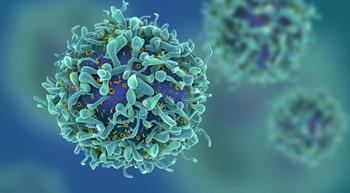
Adding Imbruvica to a standard-of-care chemotherapy-immunotherapy treatment regimen was associated with a significant improvement in survival in older patients with newly diagnosed mantle cell lymphoma.

Research showed that Hispanic children with neuroblastoma who are participating on clinical trials tended to have worse survival outcomes than others.

A small percentage of patients with metastatic breast cancer participating in clinical trials in the U.S. are Black, which, according to a patient living with the disease is a huge concern since it doesn’t represent the general population.

An analysis of more than 25,000 patients with one of the more than 20 common cancers identified that even though telehealth use for cancer care increased during the COVID-19 pandemic, certain people were less likely to benefit from the easy access to care.
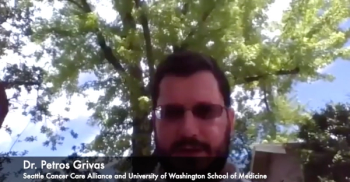
Results demonstrating the efficacy of Bavencio highlight the importance of incorporating recent clinical trial successes into the treatment conversation.
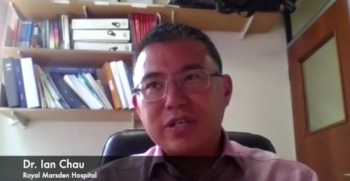
Opdivo was the first PD-1 inhibitor to show durable responses in patients with esophageal squamous cell carcinoma.

Treatment with pyrotinib and the chemotherapies trastuzumab, docetaxel and carboplatin significantly improved response rates over the triplet chemotherapy regimen alone in the neoadjuvant treatment of patients with HER2-positive breast cancer.

The data, according to the study’s lead author, confirm that Trodelvy should be considered a new standard of care in patients with metastatic triple-negative breast cancer.

Patients with early triple-negative breast cancer receiving Imfinzi in addition to neoadjuvant chemotherapy saw increased survival rates and complete responses to treatment.

The treatment was also associated with antitumor activity in patients with metastatic castration-resistant prostate cancer.
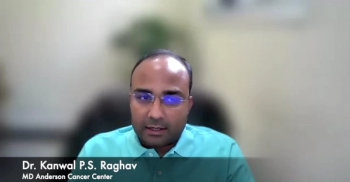
Responses to the study drug, according to one of the study’s authors, appeared far superior than what would have been expected with other treatments in patients with HER2-expressing metastatic colorectal cancer.

The long-term follow-up data, according to one of the study’s authors from the Sarah Cannon Cancer Institute, demonstrate “a new benchmark for the standard of care” in the treatment of patients with unresectable stage 3 non-small cell lung cancer.

Treatment with aumolertinib was associated with prolonged survival in patients with advanced non-small cell lung cancer.
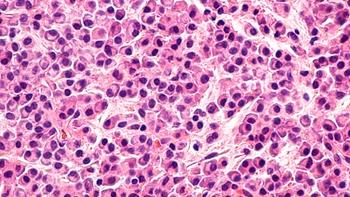
After long-term follow-up, the CAR-T cell therapy still boosted survival outcomes in patients with relapsed/refractory multiple myeloma, regardless of the number of prior lines of therapy received.

Previously treated patients with non-small cell lung cancer tended to have better responses with Retevmo than they did with prior treatments.
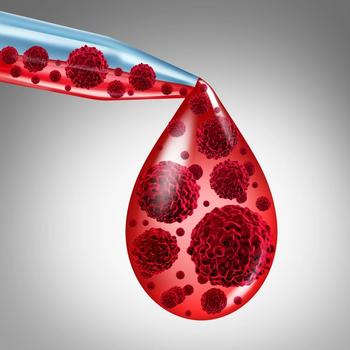
Treatment with a novel combination therapy was associated with increased efficacy among patients with aggressive relapsed or refractory B-cell non-Hodgkin lymphoma and was also well tolerated.

Although recent data show how promising a single-infusion of a specific CAR-T cell therapy may be for patients with acute lymphoblastic leukemia, an expert from the Moffitt Cancer Center notes that more research is needed for those deemed too ill to receive the treatment.

More than half of patients with previously treated advanced colorectal cancer who were treated with Lenvima and Keytruda were alive at six months while maintaining a manageable safety profile.

Patients with nonmetastatic castration-resistant prostate cancer continued to tolerate long-term treatment with Nubeqa, allowing them to maintain their quality of life and remain on therapy.

A single infusion of a novel CAR-T cell therapy was associated with early and deep responses to treatment among a certain group of patients with multiple myeloma.

Findings demonstrated that Gavreto could clinically benefit those with RET fusion-positive non-small cell lung cancer, including those who are treatment naïve.

Progression-free survival improved with Zejula compared with placebo in patients with BRCA-mutated ovarian cancer with no new safety signals.
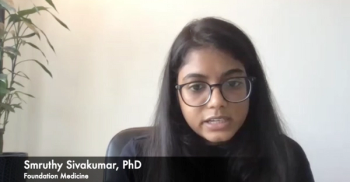
The data, according to one of the study’s authors, are critical in understanding the disparities in prostate cancer.

Adding Opdivo to treatment with Yervoy or chemotherapy improved survival, compared with chemotherapy alone in patients with unresectable and advanced esophageal cancer.